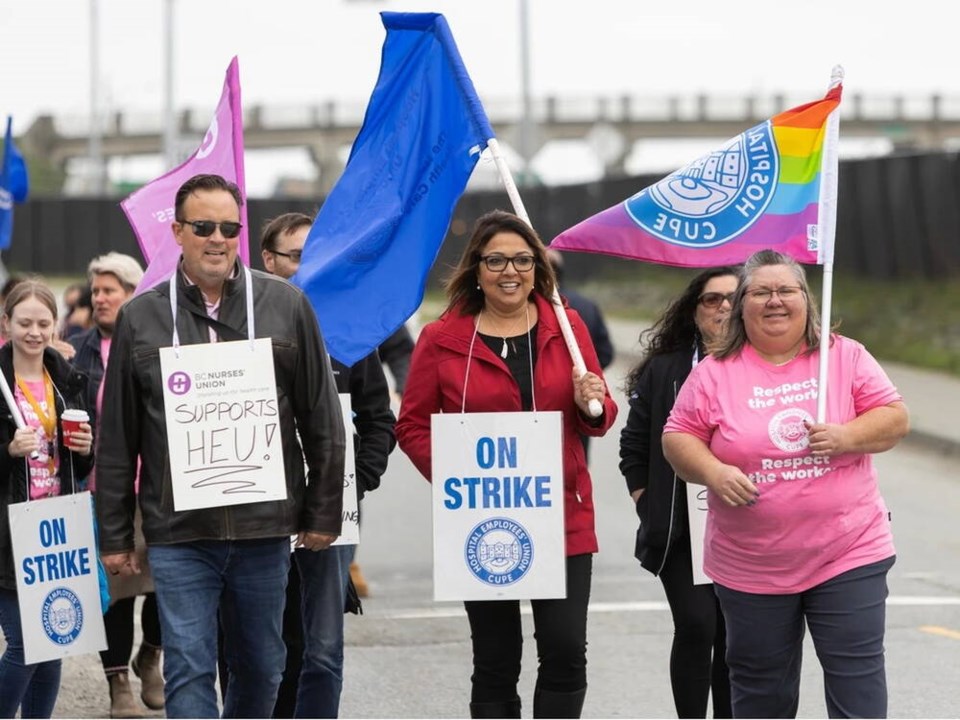Care aides in B.C. are at their breaking point, struggling with stressful working conditions and understaffing, according to a new poll commissioned by the Hospital Employees’ Union.
The survey of more than 800 B.C. care aides found that 48.5 per cent say they will likely leave their job within the next two years due to the poor conditions, more than half said they can’t meet the needs of residents in their care, and 82 per cent reported suffering from workplace violence or aggression.
On Friday, members of the union walked off the job for six hours at two of Good Samaritan Canada’s seven long-term care work sites in the province demanding improvements to benefits, sick leave, pay and contracting out.
“Morale is low. The lowest it’s ever been,” said Sarah, a care aid at a private facility in the Interior, who spoke with Postmedia on the condition of anonymity.
Care aides provide essential services including bathing, grooming and feeding in care homes and hospitals. Approximately one quarter of the positions at the facility where Sarah works are vacant as new care aide graduates seek employment in the public sector, which offers better working conditions and benefits.
Until 2001 in B.C., care aides across the province were part of a standard collective agreement. Gordon Campbell’s Liberal government dismantled protections, brought in public-private partnerships and fired thousands of unionized workers in an attempt to lower costs.
“That is what fragmented our health senior’s care system,” said the union secretary-business manager, Meena Brisard. “HEU now has hundreds of private collective agreements and contracts with private operators.”
While there have been some improvements under the health care access program, including top-ups to wages, there is a wide gap in conditions between private and public sector providers.
“The private operators are not getting workers,” said Brisard. “The situation takes a huge toll on care staff. When workers are rushed off their feet trying to meet residents’ needs, they put their own health at risk.”
A report from B.C.’s seniors advocate, Isobel Mackenzie, shows that seniors in publicly subsidized, for-profit long-term care facilities delivered 500,000 hours less than they were funded to deliver in 2021-22, and doubled their profits between 2017-18 and 2021-22.
“For-profit operators are diverting funds from care to profit,” said Brisard.
The union is calling on the B.C. government to restore common standards in wages, benefits and working conditions by bringing all care workers in B.C. under one collective agreement. “Better working conditions for our workers means better care.”
“This poll underscores what we have known for years — many of our care home residents do not receive the attention they need and that our members want to provide,” said Brisard.
Sarah, 48, has been a care aide for 26 years and works with seniors with complex needs. She said it’s not just the staff that is affected — it’s the residents too.
She worries about what will happen to seniors if staffing shortages lead to declines in care, or closure.
“I don’t know if we are going to be able to stay open or if we are going to close. Then where will they go?”



